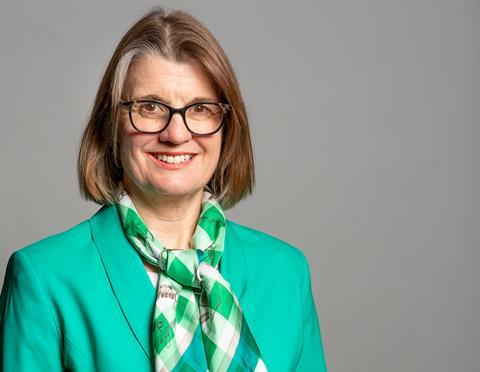Move comes as RIBA warns viable projects are getting “stuck indefinitely” because of capacity issues

The Department for Levelling Up, Housing and Communities has allocated £1.59m to a scheme to help councils recruit and develop more planners after architects reported a threefold increase in projects being cancelled because of delays in the planning process.
Last month’s RIBA Future Trends survey found 22% of practices reporting that projects had been abandoned in the previous three months because of delays in processing planning applications. The latest Future Trends survey – published on Thursday – describes planning delays as a “top concern” among architects.
DLUHC’s just-confirmed funding boost will go to the Local Government Association’s newly-launched Pathways to Planning Programme, which will place talented graduates in councils and support around 30 people with placements and bursaries while they study towards a planning masters.
The department said its funding would cover two years of the scheme and help the LGA with setting up and delivering the programme. The LGA said that in the longer term the programme was expected to support around 200 graduates with “the right skills and necessary training” to add “significant value” to local planning services.

However, with more than 300 local planning authorities in England alone, the programme will not result in one additional staff member for each council on its currently-projected numbers.
Minister for housing and planning Rachel Maclean said delivering a modern and efficient planning system was “vital” for shaping neighbourhoods and communities.
“We want to place the next generation of planners on the frontline to design beautiful homes and provide high-quality infrastructure right across the country,” she said.
“We are bringing in ground-breaking reforms to speed up the planning process through the Levelling Up Bill, and it is essential that local councils are equipped with the right skills and resources as we continue to level up towns and cities that people are proud to call home.”
Architects’ confidence ‘positive but fragile’
RIBA’s latest Future Trends survey reports architects’ sentiment is “positive but fragile”. Published on Thursday, the poll reflects sentiment expressed by a spectrum of practices last month.
It shows diminishing expectations in relation to the pipeline of work over the coming three months – with the Workload Index dropping from +8 in April to +2 last month.
Twenty-three percent of practices expect workloads to increase, 22% expect them to decrease, and 55% expect them to stay the same. Survey respondents expect housing sector work to hold steady, but other sectors are less optimistic.

Despite the reduction in positivity in relation to workloads, the survey found that staffing levels are expected to increase.
Adrian Malleson, RIBA’s head of economic research and analysis, said the continued impact of inflation was being felt in the architecture and construction sector.
“On balance, the profession is feeling positive about future work for the fourth consecutive month. However, this month’s optimistic outlook feels fragile as economic challenges gather again,” he said.
“Practices report that successive interest rate increases are affecting projects, and clients are struggling to secure project funding due to increased finance costs.
“Late payment of architects’ fees is reportedly on the rise. Overall, clients are being more cautious. The planning process is still a top concern, with viable projects getting stuck indefinitely.”
While the Bank of England’s latest base-rate rise is indicative of the ongoing battle with inflation in relation to consumer prices, Malleson said Office for National Statistics data suggested construction output inflation was falling after months of “very high” levels.
“Despite the challenges, some practices report a strengthening market, lots of potential work, increased enquires, full order books, and a notable pick-up compared to the start of the year,” he said.
















No comments yet